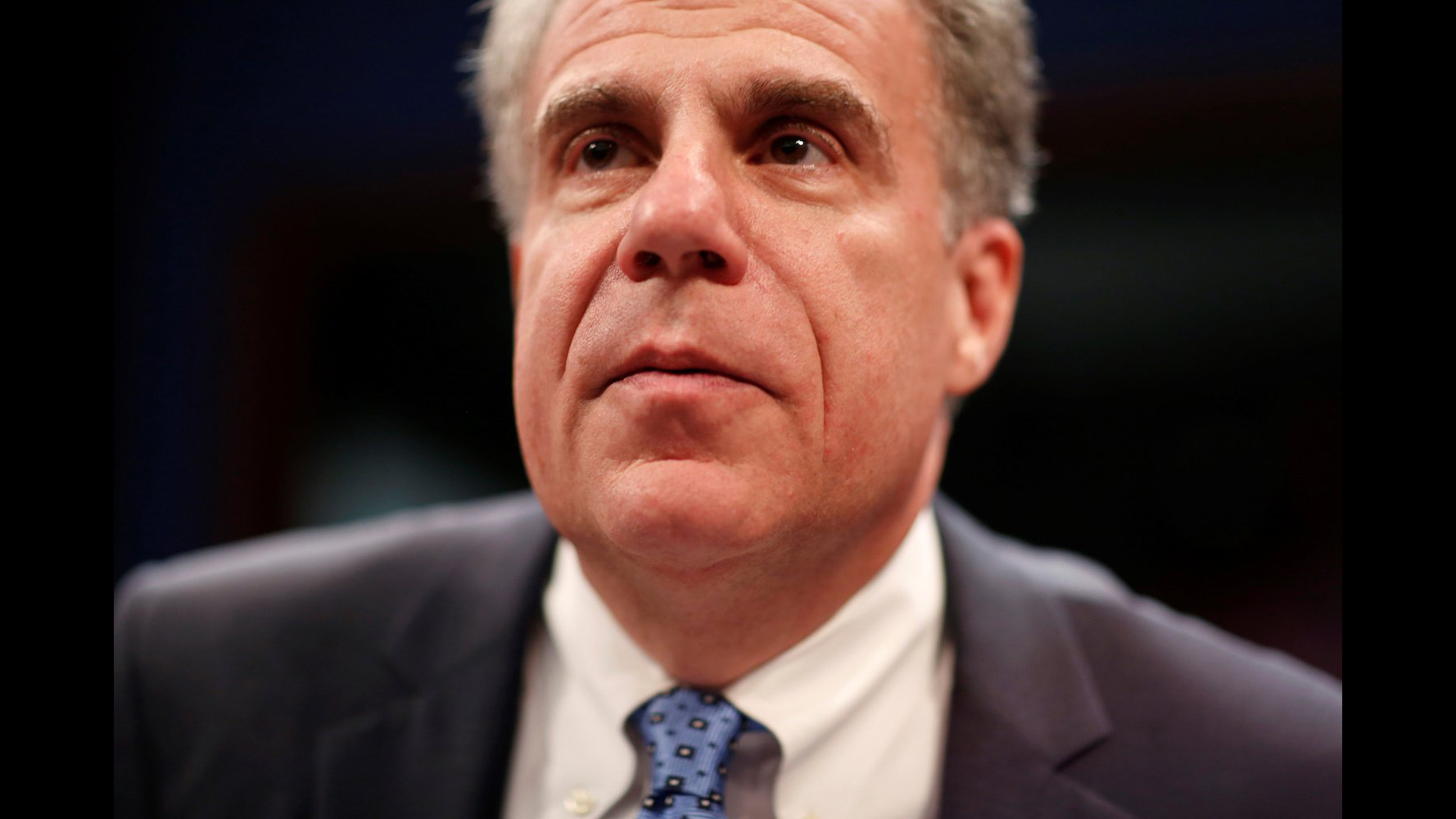Mueller and his merry band of comrades turned the FBI into the Gestapo. Lawlessness.
***Article first published by 'The Daily Caller' on Nov. 30, 2018***
- The FBI raided the home of a whistleblower who was in possession of documents regarding the Clinton Foundation and Uranium One, according to the whistleblower’s lawyer, Michael Socarras.
- The whistleblower, Dennis Nathan Cain, had turned the documents over to the Department of Justice’s inspector general and both the House and Senate Intelligence committees, according to the lawyer.
- The FBI rummaged through Cain’s home for six hours, even after the whistleblower handed over the documents, according to Socarras.
FBI agents raided the home of a recognized Department of Justice whistleblower who privately delivered documents pertaining to the Clinton Foundation and Uranium One to a government watchdog, according to the whistleblower’s attorney.
The Justice Department’s inspector general was informed that the documents show that federal officials failed to investigate potential criminal activity regarding former Secretary of State Hillary Clinton, the Clinton Foundation and Rosatom, the Russian company that purchased Uranium One, a document reviewed by The Daily Caller News Foundation alleges.
The delivered documents also show that then-FBI Director Robert Mueller failed to investigate allegations of criminal misconduct pertaining to Rosatom and to other Russian government entities attached to Uranium One, the document reviewed by TheDCNF alleges. Mueller is now the special counsel investigating whether the Trump campaign colluded with Russia during the 2016 election.
“The bureau raided my client to seize what he legally gave Congress about the Clinton Foundation and Uranium One,” the whistleblower’s lawyer, Michael Socarras, told TheDCNF, noting that he considered the FBI’s raid to be an “outrageous disregard” of whistleblower protections.
Sixteen agents arrived at the home of Dennis Nathan Cain, a former FBI contractor, on the morning of Nov. 19 and raided his Union Bridge, Maryland, home, Socarras told TheDCNF.
The raid was permitted by a court order signed on Nov. 15 by federal magistrate Stephanie A. Gallagher in the U.S. District Court for Baltimore and obtained by TheDCNF.
A special agent from the FBI’s Baltimore division, who led the raid, charged that Cain possessed stolen federal property and demanded entry to his private residence, Socarras told TheDCNF.
“On Nov. 19, the FBI conducted court authorized law enforcement activity in the Union Bridge, Maryland area,” bureau spokesman Dave Fitz told TheDCNF. “At this time, we have no further comment.”
Cain informed the agent while he was still at the door that he was a recognized protected whistleblower under the Intelligence Community Whistleblower Protection Act and that Justice Department Inspector General Michael Horowitz recognized his whistleblower status, according to Socarras.
Cain further told the FBI agent the potentially damaging classified information had been properly transmitted to the Senate and House Intelligence committees as permitted under the act, Socarras said. The agent immediately directed his agents to begin a sweep of the suburban home, anyway.
Frightened and intimidated, Cain promptly handed over the documents, Socarras told TheDCNF. Yet even after surrendering the information to the FBI, the agents continued to rummage through the home for six hours.
“After asking and getting my approval to do so, DOJ IG Michael Horowitz had a member of his staff physically take Mr. Cain’s classified document disclosure to the House and Senate Intelligence committees,” Socarras told TheDCNF.
“For the bureau to show up at Mr. Cain’s home suggesting that those same documents are stolen federal property, and then proceed to seize copies of the same documents after being told at the house door that he is a legally protected whistleblower who gave them to Congress, is an outrageous disregard of the law,” he continued.
Cain came across the potentially explosive information while working for an FBI contractor, Socarras told TheDCNF.
Cain met with a senior member of Horowitz’s office at a church close to the White House to deliver the documents to the IG, according to Socarras.
Cain sat in a pew with a hoodie and sun glasses, Socarras said. Cain held a double-sealed envelope containing a flash drive with the documents. The IG official met him and, without saying a word, took the pouch over Cain’s shoulder and left.
The law protects whistleblowers who are government contractors and requires the IG to share such potentially damaging information with the attorney general — who at the time was Jeff Sessions.
The two law enforcement officials directed the documents be sent to the Senate and House Intelligence committees for their examination, according to Socarras, who said that a high-level IG official hand-delivered the documents to the the two intelligence committees.
“I cannot believe the Bureau informed the federal magistrate who approved the search warrant that they wanted to search the home of an FBI whistleblower to seize the information that he confidentially disclosed to the IG and Congress,” Socarras told TheDCNF.
The whistleblower act is intended to protect whistleblowers within the intelligence community, which includes the FBI.
“The [intelligence community] is committed to providing its personnel the means to report violations of law,” according to a 2016 intelligence community directive.
“The [whistleblower act] authorizes employees of contractors to take government property and give it to the two intelligence committees confidentially,” Socarras told TheDCNF.
The FBI has yet to talk to Cain’s attorney despite the raid, according to Socarras.
“After the raid, and having received my name and phone number from Mr. Cain as his lawyer, an FBI agent actually called my client directly to discuss his seized electronics,” Socarras told TheDCNF. “Knowingly bypassing the lawyer of a represented client is serious misconduct.”
The Justice Department and the IG both declined to comment.


